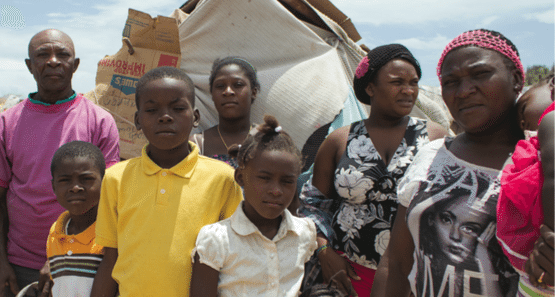The Dominican Republic has unlawfully expelled hundreds of Dominicans to Haiti who have been caught in the middle of a wave of returns and deportations of more than 100,000 people in recent months, Amnesty International said in a new report a year after the Dominican Republic ended a moratorium on deportations on June 18, 2015.
“Where are We Going to Live?” Migration and Statelessness in Haiti and the Dominican Republic reveals the reckless way in which the two governments are handling the deportation, expulsion and “spontaneous” return of tens of thousands of people from the Dominican Republic to Haiti following an 18-month long regularization plan for undocumented foreigners living in the Dominican Republic.
“Since arbitrarily stripping thousands of Dominicans of Haitian descent of their nationality, Dominican authorities created a human rights crisis that is leaving tens of thousands of people in an absolute and desperate legal limbo,” said Erika Guevara-Rosas, Americas Director at Amnesty International.
More than 40,000 people – including several hundred unaccompanied children — have been deported from the Dominican Republic to Haiti between August 2015 and May 2016, according to the International Organization for Migration (IOM) and Haitian civil society organizations.
At least another 68,000 returned to Haiti “spontaneously,” in many cases following threats or through fear of persecution and violence in the Dominican Republic.
Though 85 percent of the total told the IOM they were born in Haiti, 15 percent claim to have been born in the Dominican Republic. The majority are children of Haitian migrants who returned “voluntarily,” but who could be entitled to Dominican nationality. Nearly 1,600 people were verified by the United Nations High Commissioner for Refugees as being entitled to Dominican nationality who have been unlawfully expelled from the country.
Around 2,000 people have been living in six makeshift camps close to the southern Haitian border town of Anse-à-Pitre since August 2015. Conditions in the camps are dire with little access to food, water and sanitation or healthcare facilities. For several months, Haitian authorities failed to take leadership in finding a solution and it was only in mid-February 2016 that a plan was set up to relocate all families towards the areas of their choice.
“The Dominican Republic’s opaque way of deporting people and Haiti’s lack of capacity to offer them protection has created a disastrous and chaotic situation. Living conditions in these camps are extremely desperate and the authorities of both countries have failed to ensure the wellbeing of these people.”
The few improvements made by the Dominican Republic in the way they carry out deportations – such as avoiding collective ones and making sure deportations are not carried out at night — have not gone far enough to ensure the rights of those affected are protected, including by individually screening people to be deported and ensuring that no one entitled to stay in the Dominican Republic is expelled.
Many of the deportations are being carried out without leaving any records. Some ofthe deportees said they were arrested in the street and taken straight to the border after they failed to produce identification documents on the spot.
None of the people interviewed by Amnesty International were served with a deportation order nor had the chance to challenge its legality in court. None were offered legal aid.
Dominicans of foreign descent
In September 2013, the Constitutional Court of the Dominican Republic ruled that children born in the country to undocumented foreign parents since 1929 had never been entitled to Dominican nationality. The judgment disproportionately affected Dominicans of Haitian descent and constituted a retroactive, arbitrary and discriminatory deprivation of nationality.
Lacking nationality means not being able to exercise rights and access basic services such as formal jobs, education and health services. Those stripped of their nationality cannot travel safely within their own country and are at risk of arbitrary arrest and expulsion.
Following the expiration of the regularization plan on June 18, 2015, the Dominican authorities said they would not expel anybody who could prove they had been born in the Dominican Republic. They also promised that each case would be assessed individually and that people born in the country would be screened and protected from expulsion.
However hundreds of Dominicans of Haitian descent, and stateless people, have been caught up in a continuing wave of deportations. There is a lack of formal mechanisms for people who have been wrongly expelled to be formally readmitted to the Dominican Republic and claim reparations. In addition, Haitian authorities lack any mechanisms to deal with Dominicans of Haitian descent who have been expelled or have arrived in Haiti, including those who are stateless.
“This crisis was long in the making. It is high time for authorities both in the Dominican Republic and Haiti to take their responsibilities seriously and protect the rights of the thousands of people who have been left in this limbo,” said Guevara-Rosas.
“The newly elected Dominican authorities must take urgent action to tackle this crisis. They must immediately halt illegal expulsions of Dominican-born individuals and make sure that all deportations of undocumented migrants are in line with international law. They must also reinstate nationality to the tens of thousands of Dominicans of Haitian descent who have been arbitrarily stripped of it.”

